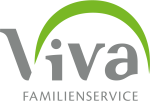SOPC: Specialized outpatient palliative care
Seriously ill people whose lifespan is limited and who are cared for at home or in a nursing home are entitled to specialized outpatient palliative care (SAPV) if the care is particularly complex. The aim is to maintain, promote and improve the quality of life and self-determination of seriously ill people and to enable them to live in dignity until death in their familiar home or family environment.
Who is entitled?
Insured persons who suffer from an incurable, progressive and so advanced disease that their life expectancy is limited and they require particularly complex care that can be provided in accordance with the requirements of palliative medicine and palliative care are entitled to SOPC.
Criteria for admission to specialized palliative care are complex symptoms such as pain, restlessness, anxiety, shortness of breath, nausea, vomiting.
What are the services?
A specially trained team (PCT= Palliative Care Team) is available 24 hours a day. If necessary, the nursing specialist comes on site and advises, supports and alleviates symptom burdens. A palliative doctor is always available in the background and can be called in.
Content and tasks of SOPC are for example:
- Coordination of palliative medical and nursing care involving all those who care for and accompany the seriously ill person. An SOPC team does not provide nursing care. If nursing care is necessary, the palliative team can implement a nursing service as well.
- Symptom relief
- Palliative medical treatment with equipment, e.g. pain pumps for the individual retrieval of a painkiller or a combination of painkillers. This also includes instruction in the use of these pain pumps
- Drawing up and keeping, as well as explaining, a treatment plan/medication plan
- Call, emergency and crisis intervention readiness around the clock
- Advising, guiding and accompanying the seriously ill person and their relatives
- Advising care providers such as nursing services
- Psychosocial support
Who is in charge to finance SOPC?
Since April 2007, specialized outpatient palliative care (SOPC) has been a benefit of the statutory health insurance funds. The seriously ill person does not have to make any co-payments for SOPC. However, there are co-payments for aids and medicines prescribed within the framework of SOPC. Prescriptions are issued by the palliative care team.
Private health insurances also cover the costs, but at least the amount that is also covered by the statutory health insurance. Those with private insurance should have their costs approved in advance.
The general practitioner can remain involved in the care if that’s in the wish of the patients. In addition, it is often a good combination if an outpatient hospice service is on board to provide multi-professional care.
How to apply for those services?
Der Antrag erfolgt über einen Krankenhausarzt oder einen niedergelassenen Fach- oder Hausarzt. Es ist auch möglich, ein SAPV-Team für eine Beratung verordnen zu lassen. Somit lassen sich erste Ängste und Bedenken nehmen. Das Team durfte den Patienten schon kennenlernen, Daten aufnehmen und kann somit bei Bedarf schneller in die Versorgung einsteigen.
Addresses of SOPC teams can be found in the Guide to Hospice and Palliative Care in Germany.
Note: It is not always guaranteed that the dying person can remain at home in their environment. If the situation arises where there are too many symptoms for the loved ones to cope with, the dying person may be better off in a palliative care unit or in an inpatient hospice.
In these settings, the relative is allowed to give up and just be there, as a wife, husband, child… medical and nursing care no longer needs to be taken care of.













